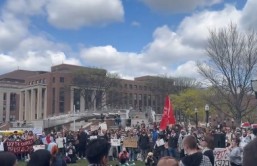According to a new UCLA study, baby boomers accounted for the largest number of adults who lost their jobs and health insurance due to the "great recession."
The Great Recession refers to the global economic decline that began in December 2007 and took a turn for the worse September 2008. Many people lost their jobs with markets falling like decks of cards. According to a new UCLA Center for Health Policy Research study, people belonging to the baby boom generation were hit hardest by the recessions, accounting for the largest number of people who lost their jobs, and with it other health benefits.
"Whether because mid-career workers are viewed as too expensive or because there is a deeper bias against older workers, the data suggests the axe is first to fall on the baby boom generation," said Shana Alex Lavarreda, lead author of the study and the center's director of health insurance studies, in a press release. "This might open the door for policymakers to question the fairness of hiring and firing in the next economic cycle."
For the study, researchers looked at data on the uninsured between 2007 and 2009 and found that approximately 700,000 Californians lost health insurance during this time. At the same time, the rate of jobless people in the state increased by more than double, from 5.5 percent to 12.3 percent. This resulted in a steep drop in the number of people receiving health insurance through their employer.
Fortunately, wealthier states experienced a lesser impact of the recession. Counties such as Marin and San Francisco saw a 1.7 percent increase in the number of uninsured, from 19.1 to 20.8 percent.
However, counties like Monterey, San Bernardino and Tulare experienced a larger impact, resulting in a significant 5.4 percent increase in the number of uninsured people, from 20.8 percent in 2007 to 26.2 percent in 2009.
The study saw a significant rise in the number of uninsured people in the age group 45-64 also the recession saw the age of the uninsured population going up.








